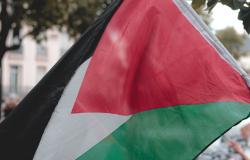Conflict in Sudan: Complex Conflict Cries Out for Solutions

Christopher Zambakari puts the current conflict in Sudan in context and asks what can be done to speed its resolution.
Sudan is a country in northeast Africa that has been marred by violence and conflict for several decades. The ongoing conflict in Sudan has resulted in countless deaths and displacement of millions of people. The conflict has also had a devastating impact on the country’s social and economic fabric, leaving the country in a state of turmoil. This article explores the social historical context of the conflict in Sudan, how it came to be, and what led to the violence. Also discussed is what the international community, United Nations, African Union, and Arab League can do to bring the violence to an end.
The ongoing, seemingly nonstop violence has been fueled by political, economic and social factors, including ethnic and religious tensions, economic inequality and political instability. Understanding the historical and social context of the conflict is crucial to finding a long-term solution to the bloodshed.
From colonialism to civil wars
The conflict in Sudan has its roots in a complex history of colonialism and a concentration of political power and wealth at Sudan’s centre at the exclusion of the country’s peripheries. Sudan was colonized by Britain and Egypt in the 19th century, a forced imperialism for the former British colony. After gaining its independence in 1956, the country struggled to establish a stable government. Plagued by coups and civil wars, Sudan became an ever-expanding internal battlefield. The longest conflict lasted from 1983 to 2005, an intense 22-year conflict between the central government in Khartoum and the Sudan People’s Liberation Army – the SPLA – fought over self-determination for the Southern Sudan and control over resources, including oil.
By the end, as many as two-and-a-half-million people were dead in the two-decade war between the southern insurgents and the government of Sudan.
But, “the end” wasn’t as clear cut as the signing of an agreement might suggest. Despite a settlement supported by the region and greater international community to end hostilities, the peace deal was followed by continued tensions between different ethnic and religious groups, leading to outbreaks of violence, including the brutal conflict in Darfur that ignited in 2003.
Darfur, historically one of the most remote regions of Sudan, is the fiercely independent home to as many as 80 ethnic groups divided between nomads and sedentary communities. A sprawling land of nearly 200,000 square miles on Sudan’s western edge, its people have long resisted efforts by different groups seeking control of all of Sudan.
What makes the Darfur conflict important is that it becomes a microcosm of Sudan’s ills: The rebel factions in the volatile region say they are fighting against marginalization and underdevelopment, but every part of the country – north, south, east, west – can make the same argument.
When does it end?
The current conflict in Sudan started in December 2018, when protests erupted against President Omar al-Bashir’s government, which had been in power for 30 years. The protests were sparked by economic hardship, corruption and political repression, and quickly spread across the country. The government responded with force, leading to the death of dozens of protesters and the arrest of opposition leaders. In April 2019, after months of protests, the military overthrew al-Bashir’s government and established a transitional government. Since then, a 2021 coup resulted in the creation of a ruling council of generals in yet another political clash, led by a pair of one-time comrades. The two – Gen. Abdel Fattah al-Burham and Gen. Mohamed Hamdan Dagalo – are now at odds over the direction of rule and the proposed move toward a civilian-run government.
If this seems like déjà vu, well it is, all over again. While al-Burham and Dagalo fight their own personal war, a framework deal crafted with hopes of putting government in the hands of the people was agreed to in December (2022). Talks have failed to affect anything meaningful.
So, the violence has continued, with armed groups vying for control over different regions and resources. The conflict – like all wars, no matter when or where – has led to widespread human rights abuses, including sexual violence, forced displacement and unprovoked attacks on civilians.
There must be an international outcry, and international action to bring peace to Sudan. To end the violence in the war-torn country, the global community, including the UN, African Union, and Arab League, must take action. This includes supporting the current transitional government in its efforts to establish a stable and inclusive government, providing humanitarian aid to those affected by the conflict, and holding perpetrators of human rights abuses accountable.
Recommendations:
- Reject the fighting. The international community, rather than choosing sides to support, should form a rock-solid alliance in opposition to the war. Isolate the combatants by making it clear peace is the only solution, there will be no compromise, no support of one side over the other, without an end to the fighting.=
- Worldwide support trumps regional support. While international participation in a solution is critical, conversely, regional support is not the answer relative to backing one side or the other. In doing so, there is the real risk of spillover into neighboring countries. Regional players should limit their support to bringing al-Burham and Dagalo to the table to negotiate a solution.
- Support the transitional government. The international community could do much to improve the situation in Sudan by providing technical and financial assistance to the transitional government to help it establish a stable and inclusive government. This includes supporting efforts to reform the security sector, establish a fair and independent judiciary, and promote human rights and democratic governance.
- Leverage influence. Countries with influence over al-Burham and Dagalo, like Saudi Arabia and the UAE, should insist on a ceasefire, which allows time for cooler heads to prevail, if they can be brought together to negotiate an end to the fighting.
- Provide humanitarian aid: The conflict has resulted in widespread displacement and suffering, with millions of people in need of humanitarian assistance. The international community should organize to provide funding and support to humanitarian organizations to ensure that those affected by the conflict receive the assistance they need, including food, shelter and medical care.
- Address the root causes of the conflict. The root causes of the conflict, including historical, political and economic factors, must be addressed; the international community can play a lead role in bringing the right players to the table in meaningful conversation and effective action. This can be achieved by promoting reconciliation, addressing grievances and promoting the equitable distribution of resources.
- Promote dialogue and negotiation. The international community should promote dialogue and negotiation between the different groups in Sudan. This can be achieved by facilitating talks and providing a neutral platform for discussion.
Let’s act. Now.
The conflict in Sudan has its roots in a complex history of colonialism and a struggle for power and resources. To end the violence, the international community must take action to support the transitional government, provide humanitarian aid and strengthen Sudanese stakeholders – from political parties to current power holders like the military, civil society organizations, human rights defenders and independent media. Such support is critical to the successful promotion of democracy and human rights in Sudan. It will take the participation of the major stakeholders in Sudan – the people, the leaders of the paramilitaries, civil society organizations and the firm backing of regional organizations like the African Union, The Intergovernmental Authority on Development (IGAD), the Arab League, the UN and the U.S.
With these steps, there is hope that Sudan can establish a stable and inclusive government and build a more peaceful and prosperous future for its people.
Dr. Christopher Zambakari is founder and CEO of The Zambakari Advisory. He is a Doctor of Law and Policy, assistant editor of Bulletin of the Sudans Studies Association, and a Hartley B. and Ruth B. Barker Endowed Rotary Peace Fellow. His area of research and expertise is policy development that ensures political stability and socioeconomic development, and his interests include modern political and legal thought, governance and democracy, the rule of law, postcolonial violence and nation-building projects in Africa. A native of South Sudan, Zambakari is a valued contributor to UN agency publications. He is a leading voice in African Union discourse and is also a voice for the UN’s Economic Commission for Africa. His research has been ranked in the “Top-10% Authors, 2017-2020” by Social Science Research Network (SSRN) and featured in “Most Read African Studies Papers Since 2013” by Routledge, a world leader in academic publishing centered on the humanities, social sciences and STEM. His work has been published in law, economic and public policy journals.
Photo by Mathias Reding


